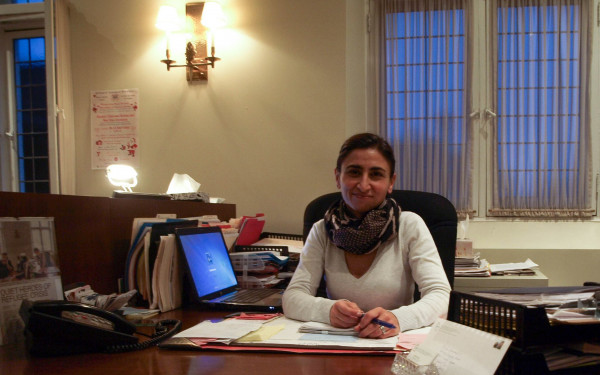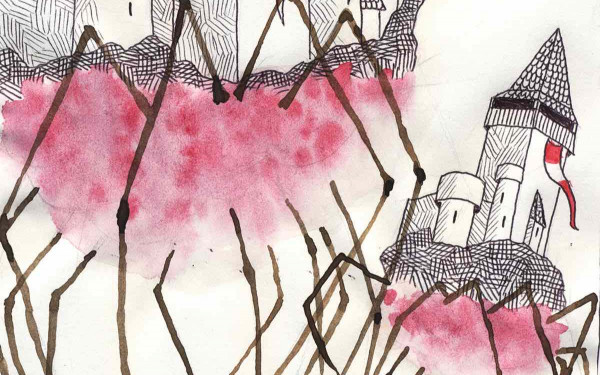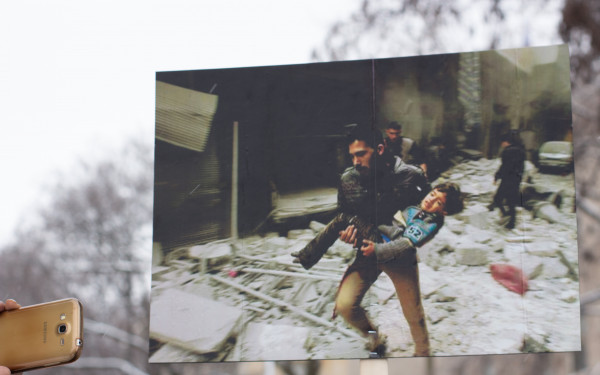Concordia Physics Department to Sponsor Syrian Refugee
Faculty Members Make 4-year Pledge to Welcome Student
Over the past weeks, Montrealers have knit, baked and run to help raise funds to welcome Syrian refugees to the city, and Concordia’s physics department is hoping to welcome one refugee into one of their programs.
This article has been updated.
Concordia University promised to sponsor five Syrian refugee students in the coming year. Now, the university’s physics department has pledged to welcome another student in its department.
Physics professor Truong Vo-Van left Vietnam, his home country, almost 50 years ago. He immigrated to Canada in 1966 to start his studies in Toronto. At that time, he wasn’t the only one to leave Vietnam—there was a big wave of Vietnamese refugees settling in Canada because of the Vietnam War of 1955 to 1975, said Vo-Van. Some years after he moved to Canada, Vo-Van sponsored one of his brothers escaping Vietnam’s communist regime to enter the country as a refugee.
Since Prime Minister Justin Trudeau made the promise to welcome 25,000 refugees in Canada in the next few months, Vo-Van and the rest of the Vietnamese community have felt inclined to help them in any way they could, he said.
“We know the hardship refugees can have in certain situations,” said Vo-Van. “We understand how it feels when good people are in rough situations.”
“We know the hardship refugees can have in certain situations. We understand how it feels when good people are in rough situations.” — Physics professor Truong Vo-Van
He presented the idea of sponsoring a Syrian refugee student to the physics department’s chairperson Alexandre Champagne, who accepted with enthusiasm.
“We are educators and we would like to send a good message to welcome physicians,” said Vo-Van.
Vo-Van, along with seven other faculty members and a benefactor of the department made a financial pledge to create a four-year full tuition scholarship for a Syrian refugee student to study in the physics department, said Champagne. In a few days, they raised $2,300, which was matched by the Advancement and Alumni Relations office led by Vice-President Bram Freedman, said Vo-Van and Champagne.
The total scholarship of $17,200 will be enough to pledge one Syrian student to complete a four-year physics undergraduate degree as well as provide for other expenses like books, for example.
Students with a refugee status pay in-province tuition fees, said Freedman in a previous interview with The Link.
The Syrian Kids Foundation—a Canadian organization that offers “humanitarian relief and social services” to Syrian refugees, according to their website—will find a student who will then be accepted by the physics department, said Champagne. The student selected will be a graduate student from Al Salam school with “high academic achievements and good ability with the English language,” said Faisal Alazem, spokesperson for the SKF. Al Salam is a school in Turkey founded by the organization that offers free education for Syrian refugee students having left their home country.
As well, the SKF will be funding the cost of living, travel expenses and providing financial support, said Alazem. “The SKF will be responsible for the resettlement of six Al Salam students to Montreal that received scholarships to Concordia University, including one to study physics,” said Alazem.
The physics department’s student body is made up of roughly 80 to 90 students, said Vo-Van, and it is hoping to welcome one more student in fall of 2016.

_900_600_90.JPG)

_600_375_90_s_c1.jpg)


